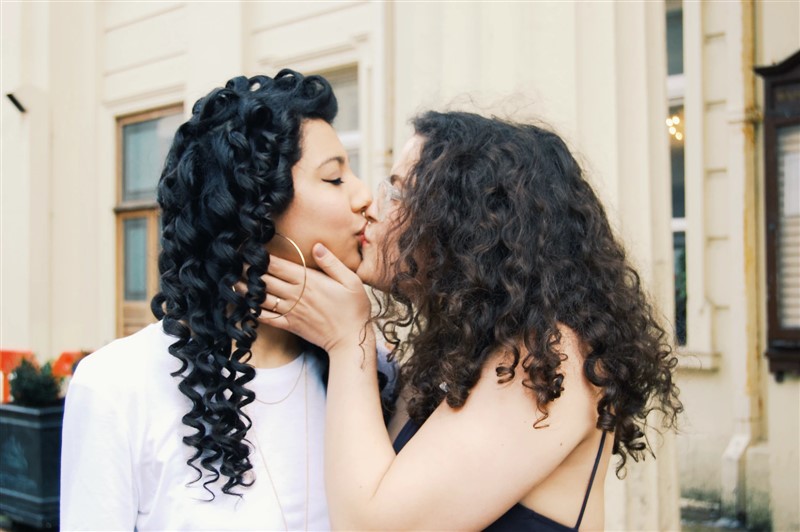This guide will give you all of the knowledge you need on the acronym WLW, including its definition, usage, sentence examples, and more!
-
Kevin
-
 February 22, 2021
February 22, 2021
-
 Common Questions
Common Questions
 February 22, 2021
February 22, 2021
 Common Questions
Common Questions
This guide will give you all of the knowledge you need on the acronym WLW, including its definition, usage, sentence examples, and more!
According to Urban Dictionary and Queer Undefined, WLW is an umbrella term that refers to all “women who love women” or “women-loving-women,” including lesbians, bisexual, pansexual, and other queer women or women-aligned people. These women and women-aligned non-binary people are considered a part of the LGBTQ+ community. WLW folks can experience homophobia like any other member of the LGBTQ+ community.
While WLW most commonly stands for women loving women, the term has a plethora of other meanings. These are listed below from Abbreviations and Acronym Finder. One should be careful to clarify the context in which they are using the abbreviation WLW – you wouldn’t want someone thinking you meant WebLogic Workshop when you meant World League Wrestling!

There are many different terms that are used within the queer community that people may be unfamiliar with if they are not a part of the community. The New York Times defines many of these in its 2019 article “The ABCs of L.G.B.T.Q.I.A.+.”
Some people may use the term WLW to describe themselves, or to describe spaces that are meant for women and women-aligned folks to gather so that their space is inclusive of lesbians, bisexual, pansexual, and other queer women and nonbinary people. In the first example, the term is used to describe a person. Sienna and Jackie are catching up via text.
Sienna: Jackie! I miss you so much. Let’s grab a coffee soon! What have you been up to?
Jackie: I miss you too! I actually just moved in with my girlfriend. We have spent all weekend building flat pack furniture and I’m exhausted LOL.
Sienna: Girlfriend! I didn’t know you were a lesbian. Wow, I’ve missed a lot! I can’t wait to meet her.
Jackie: Aw, that’s so sweet! I think you’ll really like her. I actually don’t identify as a lesbian right now, though. I call myself sapphic or WLW.
Sienna: Oh, why is that?
Jackie: I’m not quite sure where I land with my label – lesbian, gay, bisexual, pansexual, or queer – so I prefer to use those umbrella terms! That may change someday, but it’s what I’m comfortable with for now.
Sienna: Noted!
Here, Jackie uses WLW to describe herself because she does not label herself with another one of the aforementioned terms. People who do use these other labels are perfectly welcome to also describe themselves as sapphic or WLW, but it may be helpful for those who do not feel comfortable with a specific label.
In the next example, Sasha is inviting Cassadee to an event at their school’s LGBTQ+ center.
Sasha: Cassadee! You should come to our Gay Women’s Short Film Night at the LGBTQ+ Center on Saturday. It’ll be really fun.
Cassadee: That does sound fun! But I’m bisexual, not gay.
Sasha: Oh, all WLW are welcome! That makes me think maybe we should change the name to make it more inclusive.
Cassadee: You could call it ‘Sapphic Shorts’!
Sasha: I love that! I have to go print new flyers.
According to Word Hippo, there are a plethora of different words one can use to mean WLW. However, some of these do imply a more limited spectrum of attraction. The closest synonym for the term WLW is the term sapphic. According to Merriam-Webster, sapphic relates to the Greek lyric poet Sappho, who is famous for her love of women. This term has come to mean the same umbrella term as WLW – women-aligned people who have an attraction to other women, whether that be a lesbian, bisexual, or pansexual woman or non-binary person.
Overall, the term WLW stands for “women loving women,” “women who love women,” or “women loving woman.” This term is used to describe women and women-aligned non-binary people who are sexually and romantically attracted to women. This term can be used to describe lesbians, bisexual, pansexual, and queer women and non-binary people in the LGBTQ+ community, similar to the term sapphic.